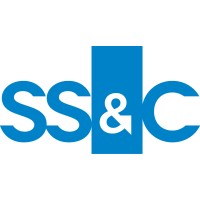Companies that use CodeQL
It is an industry-leading semantic code analysis engine that is used to discover vulnerabilities across a codebase. It lets you query code as though it were data. Write a query to find all variants of a vulnerability, eradicating it forever. Then share your query to help others do the same.
569
companies
List of companies using CodeQL
curl --request POST \
--url "https://api.theirstack.com/v1/companies/search" \
--header "Accept: application/json" \
--header "Content-Type: application/json" \
--header "Authorization: Bearer <api_key>" \
-d "{
\"company_technology_slug_or\": [
\"codeql\"
]
}"Technology
is any of
CodeQL
| Company | Country | Industry | Employees | Revenue | Technologies |
|---|---|---|---|---|---|
 United States | Software Development | 6.2k | $450M | CodeQL | |
 United States | Software Development | 26k | $10B | CodeQL | |
 United States | IT Services and IT Consulting | 1.5k | $33M | CodeQL | |
 United Kingdom | Financial Services | 1.2k | $759M | CodeQL | |
 Portugal | IT Services and IT Consulting | 1.3k | $150M | CodeQL | |
 United States | IT Services and IT Consulting | 1.3k | $468M | CodeQL | |
 Argentina | IT Services and IT Consulting | 833 | CodeQL | ||
 United States | Computer and Network Security | 110 | CodeQL | ||
 India | Financial Services | 3.8k | CodeQL | ||
 United Kingdom | Software Development | 179 | CodeQL |
We have data on 569 companies and users that use CodeQL. Our CodeQL users and customers list is available for download and comes enriched with vital company specifics, including industry classification, organizational size, geographical location, funding rounds, and revenue figures, among others.
Technology Usage Statistics and Market Share
How to target CodeQL users
- How to customize this list?
You can customize this data to your needs by filtering for geography, industry, company size, revenue, technology usage, job postions and more. You can download the data in Excel or CSV format.
- How to be alerted when companies adopt this technology?
You can get alerts for this data. You can get started by selecting the technology you are interested in and then you will receive alerts in your inbox when there are new companies using that technology.
- How to import this data to my CRM?
You can export his data to an Excel file, which can be imported into your CRM. You can also export the data to an API.
Frequently asked questions









